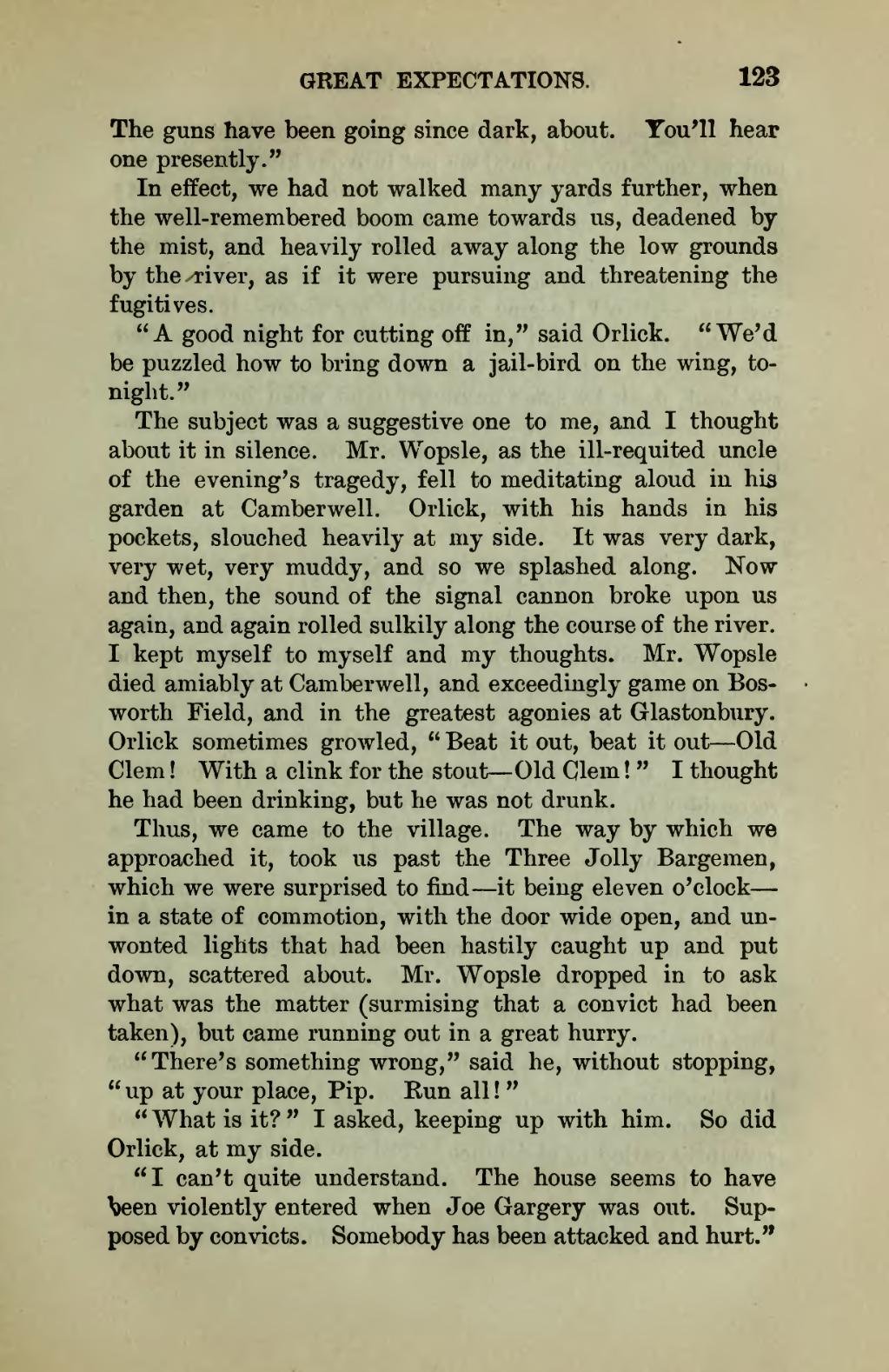The guns have been going since dark, about. You'll hear one presently."
In effect, we had not walked many yards further, when the well-remembered boom came towards us, deadened by the mist, and heavily rolled away along the low grounds by the river, as if it were pursuing and threatening the fugitives.
"A good night for cutting off in," said Orlick. "We'd be puzzled how to bring down a jail-bird on the wing, tonight."
The subject was a suggestive one to me, and I thought about it in silence. Mr. Wopsle, as the ill-requited uncle of the evening's tragedy, fell to meditating aloud in his garden at Camber well. Orlick, with his hands in his pockets, slouched heavily at my side. It was very dark, very wet, very muddy, and so we splashed along. Now and then, the sound of the signal cannon broke upon us again, and again rolled sulkily along the course of the river. I kept myself to myself and my thoughts. Mr. Wopsle died amiably at Camberwell, and exceedingly game on Bosworth Field, and in the greatest agonies at Glastonbury. Orlick sometimes growled, "Beat it out, beat it out—Old Clem! With a clink for the stout—Old Clem!" I thought he had been drinking, but he was not drunk.
Thus, we came to the village. The way by which we approached it, took us past the Three Jolly Bargemen, which we were surprised to find—it being eleven o'clock—in a state of commotion, with the door wide open, and unwonted lights that had been hastily caught up and put down, scattered about. Mr. Wopsle dropped in to ask what was the matter (surmising that a convict had been taken), but came running out in a great hurry.
"There's something wrong," said he, without stopping, "up at your place, Pip. Run all!"
"What is it?" I asked, keeping up with him. So did Orlick, at my side.
"I can't quite understand. The house seems to have been violently entered when Joe Gargery was out. Supposed by convicts. Somebody has been attacked and hurt."

